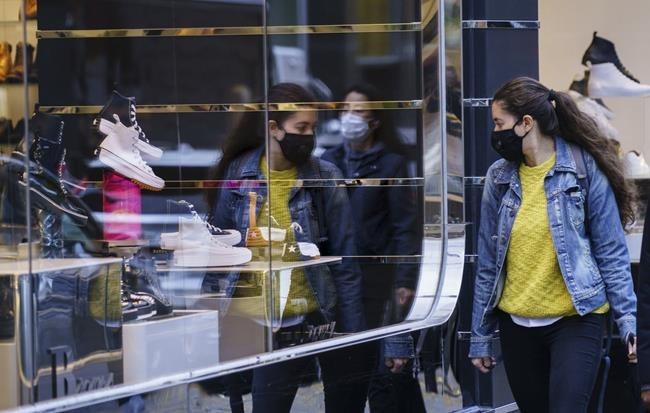As inflation continues to weigh on Canadians' budgets, some may have entered the new year taking on a self-imposed "no-buy challenge."
A no-buy challenge, made increasingly popular by social media influencers, is often done over the span of a month or even a year and involves only buying goods the participant deems essential in the hopes of saving money and improving their spending habits.
And much like a crash diet or a six-week workout program, personal finance experts say those taking on such a financial challenge won't necessarily see long-term benefits. But that doesn't mean it won't help.
Charity Oisamoje, a money expert and founder of personal finance blog The Finance Key, did a month-long no-buy in 2019. At the time, she said she was buying too much stuff out of impulse, especially clothing, beauty products and things that were on sale.
She said she needed a big change so she told herself she could only buy the essentials for a month.
Afterward, Oisamoje said she felt like her brain had gone through a reset of sorts. She had realized that she had been going into stores just to look around and emerging with unplanned purchases, and learned to curb that habit while also feeling more resistant to impulse buys.
“That helped shift my mindset,” she said.
A spending challenge like a no-buy can be a good thing, but only if you set realistic rules and also investigate why you need a no-buy in the first place, said Jessica Moorhouse, financial educator and host of the More Money podcast.
If you don’t face the root of the problem then once the challenge ends you’ll probably just fall back into old habits, she said.
“Because once that shopping ban, the challenge is over, then what? You still have to face, well, why was I shopping a lot? Why was I spending?”
Moorhouse cautions against setting rules that are too strict, or a challenge that's too long — though no-buy years are popular, they might be too extreme for some.
Taken too seriously, a spending challenge could cause stress and weigh on your mental health if you don’t make room for things that make you happy, she said.
“You’re really just surviving for a year.”
While there are many people who may benefit from a no-buy challenge, the same spending rules won't work for everyone, Oisamoje said.
“What works for one person might not work for the other person,” she said.
Some people may opt for a “low-buy” instead, meaning their non-essential budget is significantly restricted, she said.
What’s important is that you look inward and be honest with yourself about what kind of challenge will actually work for you, Oisamoje said.
If you’ve got a specific area that’s a problem when it comes to spending, such as beauty products or clothing, you can do a no-buy for that category only, suggested Moorhouse. First, look at what you’re spending on a monthly or annual basis in that category, then make clear rules that still allow for breathing room.
An extreme spending challenge can be like a crash diet, said Moorhouse: done wrong, you’ll either break the rules, or fall back into old habits when it’s over, or both.
It’s a good idea to journal during the challenge, said Moorhouse, so you can work through what you’re feeling and figure out what to do when the challenge is over.
It might be easier to commit to a short and extreme challenge than a long-term change, but it’s long-term change that will make the biggest difference, she said.
This report by The Canadian Press was first published Jan. 24, 2023.
Rosa Saba, The Canadian Press



